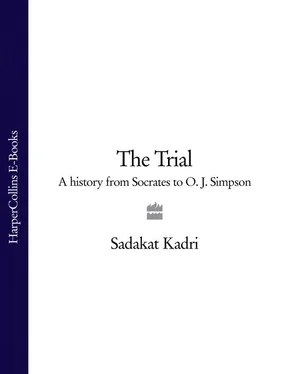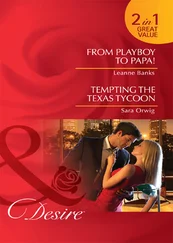Raleigh’s claim that criminal trials were public arguments over the meaning of testimony would, of course, be vindicated, but a crucial issue remained unresolved. The ancient notion that jurors themselves were somehow witnesses had always made for a certain tension as to their proper role. It was widely agreed that juries decided questions of fact, but those decisions could be regarded as statements so sacrosanct as to be unquestionable. They might alternatively be seen as lies, tantamount to perjury. Which view prevailed depended simply on whether judges would presume to decide that jurors had breached their oaths to God.
The chances that they would do so had built throughout the 1500s, as England’s expanding middle class grew ever more likely to stand up to their social superiors. By the end of the century, it was becoming increasingly common for judges to fine jurors – sometimes for returning a supposedly corrupt verdict, and sometimes simply for breaching the ancient rules requiring that they deliberate without food, drink, and fire. John Mucklow was imprisoned and fined twenty shillings in the mid 1570s after being caught smuggling preserved barberries, sugar candy, and liquorice into the jury room. A decade later, several jurors who were taking too long over their verdicts were searched and again found to be in possession of contraband: two who confessed to eating figs were fined £5 apiece, and three who admitted possession, but not consumption, of apples, had to pay forty shillings. Such disputes turned on fruit, but they reflected an issue that was anything but trifling: the ancient question of who in the community wielded the ultimate power to judge.
The case that brought the conflict to a head – the prosecution of two Quaker activists in 1670 – could hardly have been more perfectly designed to do so. In a country still rolling with the aftershocks of a civil war that had seen a monarch executed, the Church abolished, and each institution revived within a dozen years, deference was in short supply. Nonconformists such as the Puritans had led the revolt against King Charles I, while countless other sects had thrived during the subsequent eclipse of Anglicanism, and few were friendly towards the notion of secular rule. Several had theological objections to tax. Some had a problem with human law in its entirety. All were anathema to the restored forces of royalism.
Almost as soon as it took power, the new government had enacted statutes to reassert the authority of the official Church. The most draconian was the Conventicle Act of 1664, which made it an offence – punishable by death, if repeated – to participate in any act of nonconformist worship involving more than four people. Over the next few years, thousands of prosecutions were launched, and hundreds of dissenters were transported or executed for violating the statute. The Act came up for renewal in 1670, provoking protests across England. One of the demonstrations, staged by Quakers, would give rise to the most significant jury trial in history.
The Quakers were a threatening bunch from the standpoint of the status quo. Founded by a man who claimed a hundred and fifty miracles to his credit and named for their tendency to tremble and yelp while at prayer, adherents rarely met a convention that they did not despise. Some regarded clothes as superfluous and perambulated in the nude. Others went in the opposite direction and kept their hats on in the presence of social superiors – an expression of sartorial independence that sometimes inspired no less distress than the nudity. Several set out to undermine the greatest certainty of all, staging enthusiastic attempts to raise the dead. The eccentricity was accompanied by a dynamism that put them at the front line of resistance during the 1660s, and when word spread in August 1670 that they would be holding a prayer meeting at a hall in London’s Gracechurch Street, the authorities took no chances. Would-be worshippers arrived to find the doors padlocked. Among those worshippers, however, were two men who realized that the closure made a protest easier than ever. Turning to a crowd that was perhaps a hundred times the size permitted by the Conventicle Act, a 25-year-old called William Penn began to speak. Within minutes, he and a 42-year old linen draper by the name of William Mead were under arrest.
Battle was joined two weeks later at the Sessions House of the Old Bailey. The Fire of London had reduced much of the capital to waste four years before and its courthouse had been temporarily relocated into a wooden shack; but the surroundings belied the significance of the moment. The people present, who included five aldermen and a hundred or so spectators, were in for a magnificent show.
Presiding over the court were London’s two most senior judges – its staunchly royalist * Lord Mayor, Samuel Starling, and Recorder Thomas Howel – and they were resolved from the outset to make an example of the nonconformist troublemakers. Both defendants were kept waiting in the malodorous holding cell for the sitting’s entire first day, while the court processed assorted ruffians and cutpurses instead, and when it reconvened two days later, the judges were ready with a second surprise. Aware of the Quakers’ touchiness about headgear, Samuel Starling had determined to cite both men for contempt as soon as they entered court – and when an over-eager bailiff accidentally upset his plans, he refused to be denied. ‘Sirrah, who bid you put off their hats?’ he yelled. ‘Put [them] back on again.’ The defendants were duly re-hatted, whereupon Thomas Howel fined them forty marks (a sum that could have paid for another hundred hats) for refusing to take them off again.
The authorities had charged both men with addressing a tumultuous assembly, a violation of common-law custom – doubtless concerned that a charge under the Conventicle Act might turn the trial into a direct assault on the statute. But Penn was not someone who could be so easily wrongfooted. A portrait painted some four years earlier shows an elegant and self-possessed young man, and although a committed religious rebel, he was easily the social and intellectual equal of his judges. The son of an admiralty official acquainted with King Charles II, he had studied at Oxford – before, on his own account, being ‘banisht’ – and the contrariness that then took him into several jails had not stopped him from picking up a legal education at Lincoln’s Inn. And like any eighteenth-century Quaker, he could talk the talk at least as well as he walked the walk. Told the charges against him, he asked that they be put in writing because they were too long to remember and then demanded to know ‘upon what law you ground my indictment’. Thomas Howel replied it was based on ‘the common law’. And where, Penn asked, might that be found? The flustered judge took refuge in Latin, declaring that it was lex non scripta – or unwritten law – and a thing ‘which many have studied thirty or forty years to know’. If it was that hard to understand, countered Penn, it did not sound very common at all.
It was presumably crowd-pleasing stuff, but the trial itself, like most hearings of the period, was a perfunctory affair. Four men trooped through the witness box to state that Mead had been at Gracechurch Street, that Penn had ‘preached’ words that they could not recall, and that there had been several hundred people on the scene. When the defendants tried to address the jurors – contending that they should not be convicted because they had not incited violence, and pleading with them to remember that their verdicts would affect tens of thousands of lives – they were swiftly dragged into the holding cell. As Penn continued his speech from below the court, Howel told the jurors that they had heard evidence proving the indictment and should now return their verdict. There is no doubt what he expected it to be.
Читать дальше




![Theresa Cheung - The Dream Dictionary from A to Z [Revised edition] - The Ultimate A–Z to Interpret the Secrets of Your Dreams](/books/692092/theresa-cheung-the-dream-dictionary-from-a-to-z-r-thumb.webp)







